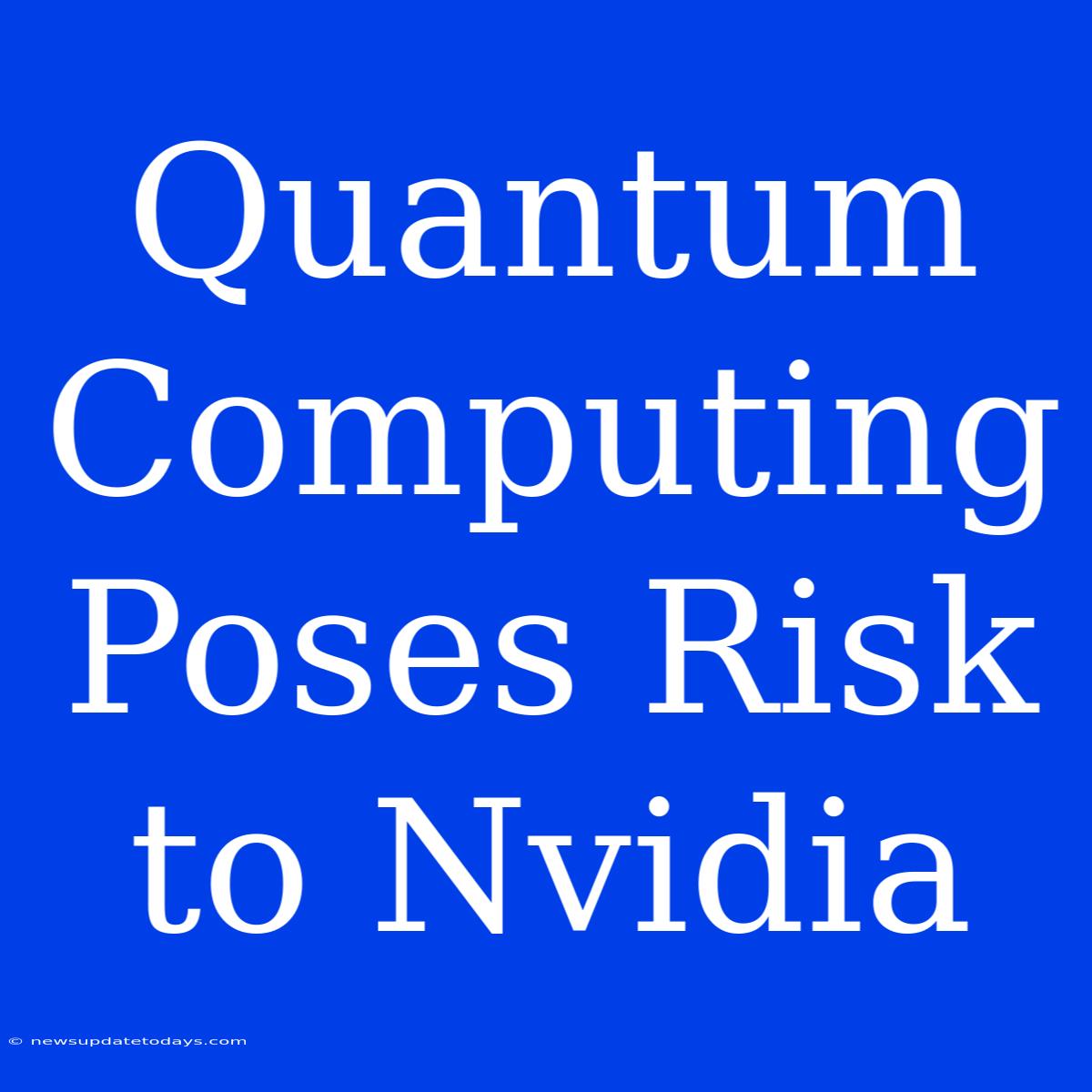Quantum Computing: A Looming Threat to Nvidia's Dominance?
Nvidia currently reigns supreme in the GPU market, powering everything from gaming PCs to artificial intelligence supercomputers. But a new technological horizon is emerging that could potentially challenge Nvidia's dominance: quantum computing. While still in its nascent stages, quantum computing's potential to disrupt established industries, including Nvidia's core markets, is undeniable. This article explores the potential risks quantum computing poses to Nvidia and examines how the company might adapt to this evolving landscape.
The Quantum Threat: A Paradigm Shift in Computing
Quantum computers leverage the principles of quantum mechanics to perform calculations far beyond the capabilities of classical computers. This means solving problems currently intractable for even the most powerful GPUs, including those manufactured by Nvidia. Areas like cryptography, drug discovery, and materials science could be revolutionized, creating entirely new markets and rendering current computational approaches obsolete.
Nvidia's Current Strengths and Vulnerabilities
Nvidia's success stems from its highly optimized GPUs, excellent software ecosystem (CUDA), and strong partnerships across various industries. However, this strength also presents a vulnerability. If quantum computing matures to the point where it can effectively tackle the same problems currently addressed by GPUs, Nvidia's market share could be significantly impacted. The demand for high-performance computing power might shift towards quantum solutions, leaving Nvidia's current product line less relevant.
Potential Impacts on Nvidia's Key Markets
-
AI: While GPUs are currently crucial for AI development, quantum computing could potentially accelerate AI algorithms exponentially, leading to a need for entirely new hardware and software infrastructure. Nvidia's dominance in AI acceleration could be challenged if quantum computers prove more efficient for specific AI tasks.
-
High-Performance Computing (HPC): HPC relies heavily on Nvidia's GPUs for complex simulations and data analysis. Quantum computers, with their potential for solving previously unsolvable problems, could disrupt this market, creating demand for hybrid classical-quantum computing solutions.
-
Gaming: While less immediately affected, the long-term implications of quantum computing for gaming are unclear. Future gaming applications might require the processing power that only quantum computers can provide, potentially requiring a shift away from Nvidia's current GPU architecture.
Nvidia's Potential Responses
Nvidia isn't oblivious to the threat. The company has already begun exploring quantum computing technologies. Potential responses include:
-
Investment in quantum computing research: Developing their own quantum computing technologies or partnering with leading quantum companies would allow Nvidia to stay ahead of the curve and integrate quantum capabilities into their existing ecosystem.
-
Development of hybrid classical-quantum systems: Creating systems that integrate both classical and quantum computing capabilities could provide a bridge to the future, allowing for a gradual transition and leveraging the strengths of both technologies.
-
Focus on specialized markets: Concentrating on niche markets where quantum computing might not immediately have a significant impact can help mitigate the risk.
Conclusion: Navigating the Quantum Future
The rise of quantum computing presents both a challenge and an opportunity for Nvidia. While the timeline for widespread adoption of quantum computing remains uncertain, its potential to revolutionize computing is undeniable. Nvidia's ability to adapt and innovate, potentially through strategic investments and partnerships, will determine its success in this evolving technological landscape. The future of high-performance computing is likely to be a hybrid one, combining the strengths of classical and quantum approaches. Nvidia's proactive engagement with this emerging technology will be crucial for maintaining its leading position.

